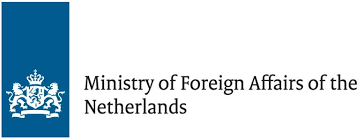Every hour of every day, the Ministry of Foreign Affairs promotes the interests of the Kingdom abroad. The Ministry coordinates and carries out Dutch foreign policy at its headquarters in The Hague and through its missions abroad. It is likewise the channel through which the Dutch Government communicates with foreign governments and international organisations.
Members:
Resources
Displaying 31 - 35 of 39Influencing Policy for Sustainable Cocoa Landscapes in Ghana
General
In Ghana, we aim to agree on better policies for planted and naturally occurring trees and land tenure arrangements, to enable cocoa farmers to adopt good agricultural practices. Cocoa farmer organisations, Chiefs, land committee, queen mothers, assembly members, private companies, research institutions and CBOs of Sefwi Wiawso were engaged in dialogue. Jointly recommendations for policies, by-laws and norms for on-farm tree ownership and land access security were formulated and agreed. A new lease agreement document that defines rights and obligations of tenant cocoa farmers and traditional authorities (landowners) is about to get finalized, allowing for automatic renewal of forty years and giving cocoa farmers more certainty on their land rights. We provided practical support to 4 farmer organisations and 5 CBOs to raise their knowledge around land and tree ownership and acquisition policies. Particularly women’s access to land has been on the agenda in 20 communities to prepare them for the stakeholder dialogue and meaningful participation.
Supporting Chinese efforts to re-use brownfield and marginal land for low carbon and renewable energy purposes
General
The project is designed to promote China-UK collaboration to evaluate and adapt innovative methodologies, in order that China can re-use brownfields and marginal land for low carbon and renewable energy purposes. This is intended to support the development of low-resource strategies for land management, decontamination of land, urban regeneration, and community enterprise for brownfield and marginal land areas. This is expected to generate opportunities for international businesses, including UK ones.
Enhancing occupational safety and health standards in the construction sector in Cambodia
General
Occupational accidents and diseases have an impact not only on the lives of individual workers, but also on the productivity and profitability of businesses, the sustainability of social protection systems and ultimately on the welfare of the whole society. The project aims to address the need to improve occupational safety and health of workers and workplaces in Cambodia’s construction sector and will focus on the construction of commercial and residential buildings. To improve occupational safety and health of workers and workplaces in these parts of the construction sector, the project will support Cambodia in strengthening its OSH laws and regulations as provided for in the activities and targets set out in its 2nd National OSH Master Plan 2016-2020. The project will also support initiatives that are intended to secure a higher level commitment by government agencies and social partners to collaborate and to create broader based awareness of safety and health measures in general as well as in the supply chain and chemical usage for construction of commercial and residential buildings. These initiatives will focus on building greater collaboration among relevant government agencies who are in a position to support improvement in the quality and delivery of OSH services and to increase their scope of coverage, including the Ministry of Labour and Vocational Training, Ministry of Land Management, Urban Planning and Construction (MoLMUP), the National Social Security Fund and other relevant agencies. ILO’s key OSH standards such as Promotional Framework for OSH Convention (No 187, 2006), Safety and Health in Construction Convention (No. 167, 1988), Asbestos Convention (No.162, 2006), Guidelines on Occupational Safety and Health Management Systems (ILOOSH 2001), and the ILO Code of Practice Safety and health in construction will be fully applied as sound guidance to strengthen national concerted actions. This project will be implemented in the framework of the ILO's Global Action for Prevention on Occupational Safety and Health (OSH GAP) Flagship Programme. This programme seeks to foster the creation of a global culture of prevention, with the objective of achieving real reductions in the incidence of work-related death, injury and disease.
Overseas Territories Justice, Security & Governance
General
This programme aims to ensure that the Overseas Territories (OTs) are protected from and resilient to a range of security threats including natural and man-made disasters, economic insecurity, crime and public health threats. It also aims to ensure that OTs are governed by effective and transparent government agencies and institutions that comply with key identified international conventions. This is an ODA and non-ODA integrated programme. The spend reported against this programme is the ODA element alone.
United Nations Development Programme: Climate Promise
General
The UNDP Climate Promise programme helps developing countries implement their national climate pledges – Nationally Determined Contributions (NDCs). The programme aims to increase ambition, implementation and engagement for NDCs under the United Nations Framework Convention on Climate Change (UNFCCC). Defra's contribution focuses on the Forest, Land and Nature work area, contributing to increase the representation of nature in 8 countries’ NDCs through to COP27, the Global Stocktake in 2023 and to 2026. Project activities include: - Supporting countries in assessing the extent to which nature could contribute to meet climate targets, and establishing the steps required to meet this potential; - Supporting countries to develop detailed delivery plans and policies across relevant sectors that would enable them to maximise the role of nature in reaching the Paris climate goal; - Supporting countries in implementing delivery plans and policies, so that commitments and targets could be delivered through concrete actions. The UNDP Climate Promise aligns with the Prime Minister’s commitment of at least £3 billion of ICF to climate change solutions that protect and restore nature and biodiversity over five years, HMG’s Integrated Review, Response to the Dasgupta Review and COP26 commitments including the Glasgow Leaders Declaration.


